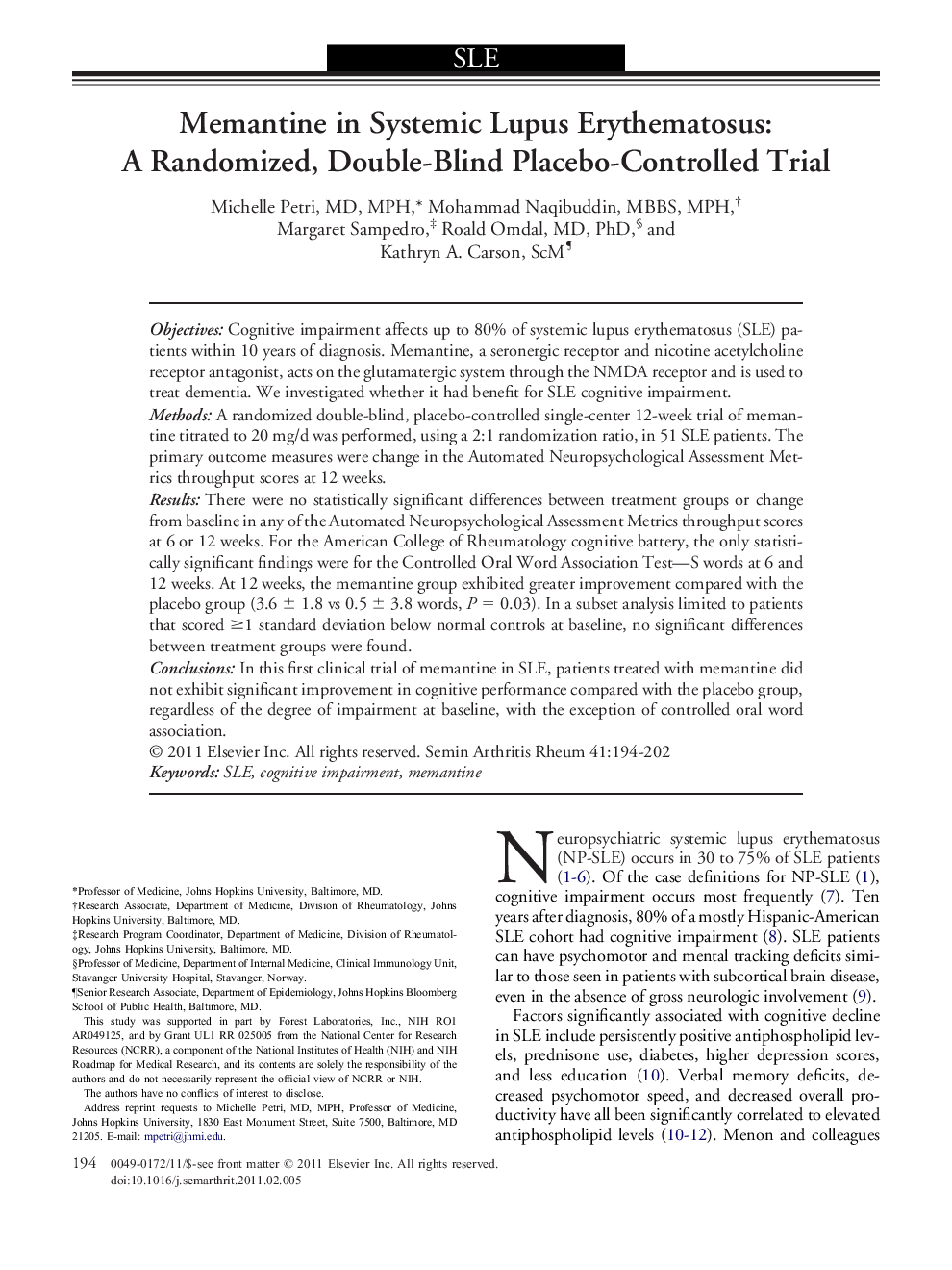| Article ID | Journal | Published Year | Pages | File Type |
|---|---|---|---|---|
| 2771586 | Seminars in Arthritis and Rheumatism | 2011 | 9 Pages |
ObjectivesCognitive impairment affects up to 80% of systemic lupus erythematosus (SLE) patients within 10 years of diagnosis. Memantine, a seronergic receptor and nicotine acetylcholine receptor antagonist, acts on the glutamatergic system through the NMDA receptor and is used to treat dementia. We investigated whether it had benefit for SLE cognitive impairment.MethodsA randomized double-blind, placebo-controlled single-center 12-week trial of memantine titrated to 20 mg/d was performed, using a 2:1 randomization ratio, in 51 SLE patients. The primary outcome measures were change in the Automated Neuropsychological Assessment Metrics throughput scores at 12 weeks.ResultsThere were no statistically significant differences between treatment groups or change from baseline in any of the Automated Neuropsychological Assessment Metrics throughput scores at 6 or 12 weeks. For the American College of Rheumatology cognitive battery, the only statistically significant findings were for the Controlled Oral Word Association Test—S words at 6 and 12 weeks. At 12 weeks, the memantine group exhibited greater improvement compared with the placebo group (3.6 ± 1.8 vs 0.5 ± 3.8 words, P = 0.03). In a subset analysis limited to patients that scored ≥1 standard deviation below normal controls at baseline, no significant differences between treatment groups were found.ConclusionsIn this first clinical trial of memantine in SLE, patients treated with memantine did not exhibit significant improvement in cognitive performance compared with the placebo group, regardless of the degree of impairment at baseline, with the exception of controlled oral word association.
